The Muslim looking after a Hindu shrine in India
He says lots of Muslims also come here and offer prayers
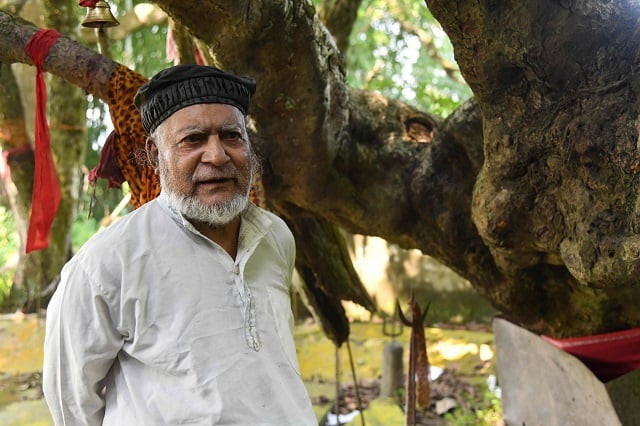
Muslim caretaker Motibar Rahman, 73, standing by a shrine to the Hindu deity Shiva. PHOTO: AFP
Like his forefathers, Rahman, 73, sweeps the Burha Gosair Than shrine every morning and lights candles for Shiva, one of Hinduism's foremost deities, who many believe resides inside.
"Before me, my father used to do this work and his father before him.
Our family has been the keepers of this holy place for the past 500 years," the 73-year old told AFP.
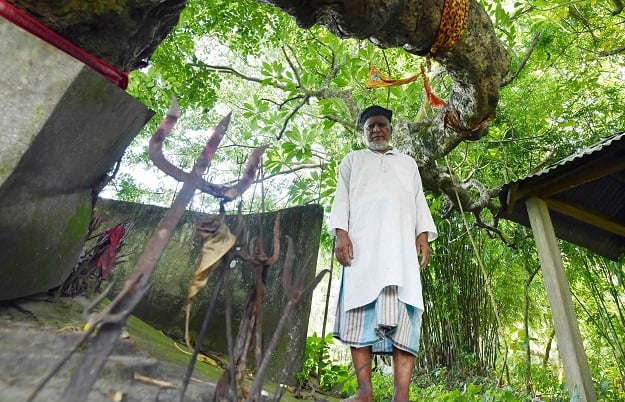 PHOTO: APF
PHOTO: APF"The first man in our family is Borhansa. Lord Shiva came to Borhansa and told him, 'I want to live in this place. From now on it will be the responsibility of your family to keep this place. I shall accept service from your family only and no one else'," Rahman explained.
Indian women seek police protection after entering Hindu temple
The shrine is in Assam state, part of India's far-flung northeast, long a melting pot of ethnic groups and religions sandwiched between
Muslim-majority Bangladesh and mostly Buddhist Myanmar.
Tensions have been stoked by a recent citizens' register in the state of 33 million that its proponents hope will weed out "non-indigenous" people, many of them Muslims.
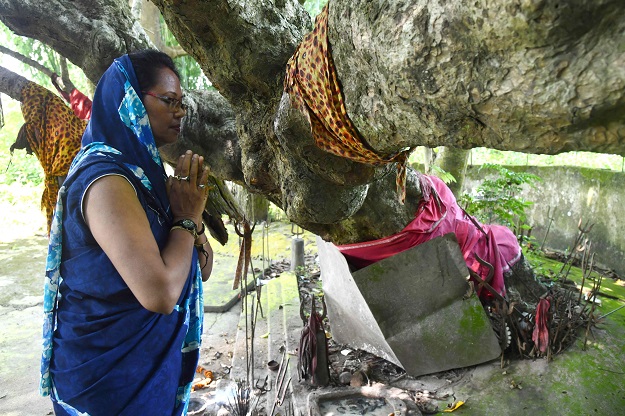 Bonti Das, a Hindu devotee, offering prayers at a shrine taken care of by a Muslim. PHOTO: AFP
Bonti Das, a Hindu devotee, offering prayers at a shrine taken care of by a Muslim. PHOTO: AFPAccording to the 2011 census, 61 per cent of Assamese are Hindu and 34 per cent Muslim. The remainder is Christian, Buddhist, Sikh or of other religions.
Rahman says that his name was included in the citizens' register - unlike some 1.9 million people who now face the possibility of being made stateless, put in detention camps and even deported.
"Apart from the Hindus, lots of Muslim people also come here and offer prayers. People including the Hindus and Muslims say that their prayers are often fulfilled," he said.

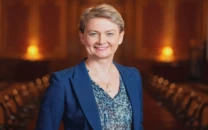



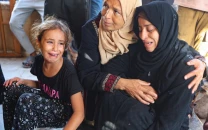













COMMENTS
Comments are moderated and generally will be posted if they are on-topic and not abusive.
For more information, please see our Comments FAQ